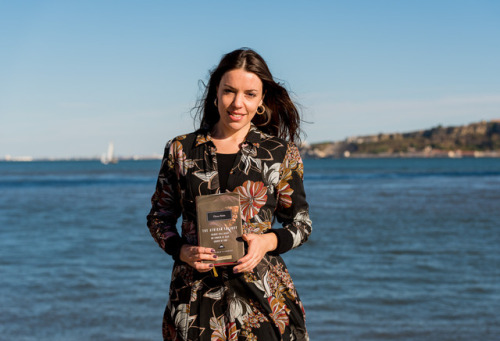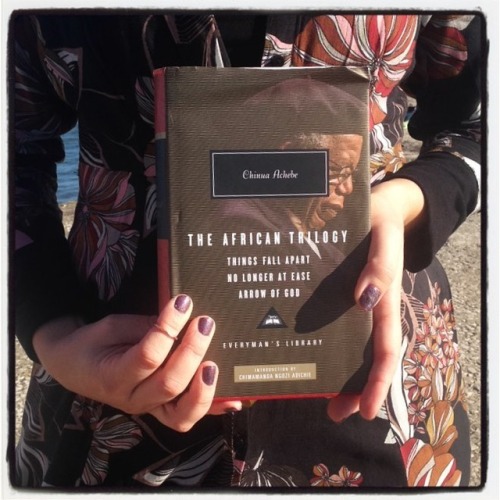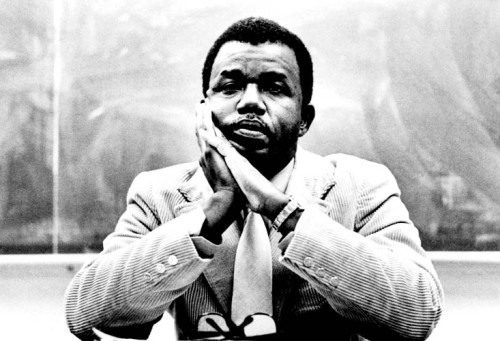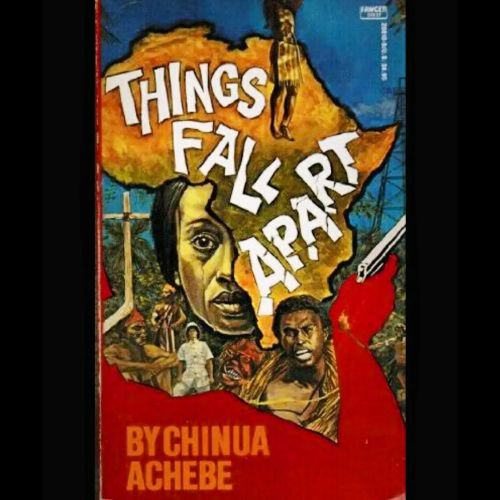#chinua achebe
07. the Roots - Things Fall Apart (1999)
Age: Black Thought (26), ?uestlove (28)
Genre: East Coast/Conscious Hip Hop
Song to Get You In: “Without a Doubt”
Post link
Grad School Achebe #2: 2 Things 2 Apart!
Grad School Achebe #2: 2 Things 2 Apart!
Gerry and Aaron are back for more Things Fall Apart, talking about parts two and three of the novel! We also talk The Sopranos, Watchmen, Breaking Bad, bad fans, The Things Fall Apart film, just a little Vonnegut, and Achebe’s 1973 essay “Named for Victoria, Queen of England”…
https://traffic.libsyn.com/secure/gradschoolvonnegut/GSA2_Things_Fall_Apart_whole_book.mp3
GSA1: Things Fall Apart chapters 1-13
GSA1: Things Fall Apart chapters 1-13
It’s all happening again…
Grad School Achebe #8: “The Voter”
Grad School Achebe #8: “The Voter”
The long-anticipated to The Many Saints of Newark bonus episode is finally here: “The Voter”!
GSA #7: A MAN OF THE PEOPLE!
GSA #7: A MAN OF THE PEOPLE!
Gerry and Aaron talk about what may be their favorite Achebe novel yet, A Man of the People, originally published in 1966. Also they try to figure out whether or not America had a coup.
Just Another Monday Morning, Just Another Set of Monday Morning Links
Just Another Monday Morning, Just Another Set of Monday Morning Links
Grad School Achebe #5 is up! This one is on “Chike’s School Days,” “The Sacrificial Egg,” and “Akueke,” two stories in which singularly nothing happens (and also “Akueke”). Check it out!Coming to Marquette in 2022: J.R.R. Tolkien: The Art of the Manuscript! I’ll be teaching a course in relation to this exhibit.Fellowships at the Käte Hamburger Centre for Apocalyptic and Post-apocalyptic Studies…
Monday Morning Links!
The latest Grad School Achebe not-so-mini-episode is up! This one is about two of Achebe’s short stories, “Marriage Is A Private Affair” and “Dead Man’s Path.” It was one of our best conversations yet, on some of the slightest literary territory we’ve yet staked out…More good podcast news: the Ranged Touch Homestuck podcast is a reality.ICYMI: I’ll be doing a lecture and seminar series as a…
A Whole Summer’s Worth of Links Crammed into a Two-Weeks-Sized Bag
A Whole Summer’s Worth of Links Crammed into a Two-Weeks-Sized Bag
Some of my own stuff that’s gone up lately: Grad School Achebe #3: No Longer at Ease, my review of Lynell George’s A Handful of Earth, A Handful of Sky: The World of Octavia E. Butler, “Science Fiction and Utopia in the Anthropocene” from American Literature 93.2, and my scorching hot take on Loki and Black Widow.(There’s a mini-scorching-hot-take on Loki and The Suicide Squad in this Twitter…
Things Fall Apart - Chinua Achebe
O Tejo vertendo no Atlântico, amplo e luminoso, por baixo da ponte 25 de Abril, é para mim um dos locais mais inspiradores de Lisboa, que faz-me sempre viajar mentalmente até outros universos, como a boa literatura. Uma visão que, de certeza, também inspirou muitas outras pessoas e apelou-as para a aventura. Daqui partiram de barco, respondendo a um chamamento interior; sonhavam com a prosperidade, com façanhas, descobertas,… vá lá saber qual ideia os fazia riscar a própria vida. Hoje, um monumento em Belém homenageia o espírito empreendedor de parte desses “descobridores” portugueses. Mas muito frequentemente esquecemos que, aqueles que tiveram que os acolher, nas outras margens, não viveram o encontro como uma simples aventura, mas sim como uma experiência traumática. As consequências dessas viagens perduram até aos nossos dias, mudaram o planeta e a nossa percepção do mesmo de forma dramática.
Em terra firme, nas outras margens, os Europeus chegavam e “tudo se desmoronava”. Essa é a ideia de partida que subjaz no título “Things Fall Apart”, de Chinua Achebe. Publicado em 1958, dois anos antes da independência do seu pais, é o primeiro volume da chamada “Trilogia Africana” do escritor nigeriano. Ambientada a finais do século XIX, em plena expansão colonizadora europeia, conta a estória de Okonkwo, um chefe e pai de família de uma comunidade igbo, bem como dos seus familiares e outras pessoas da aldeia, chamada Umuofia, e de vários ingleses destinados no território.
O facto imperialista é narrado do outro lado, o lado Africano neste caso, mas a grandeza do livro é não cair numa pura nostalgia simplista de “tempos melhores”, num bucólico passado pré-colonial livre de males. Pelo contrário, Achebe é um autor sinceiro e sem complexos que apresenta as personagens e a sociedade igbo em toda a sua complexidade, com as suas luzes e as suas sombras. As páginas estão cheias de ironia e humor, e nenhuma das personagens é tratada com condescendência, nem sequer Okonkwo, o principal, que por vezes amamos e por vezes parece-nos ser o mau da fita. Justamente por isso, esta história é um contra-relato: revela a falta de percepção dos colonos, que a pesar de se considerarem superiores, não conseguem perceber a complexidade dos “sujeitos”, dos Africanos, e interpretam as suas reações como “selvagens” ou bárbaras.
Já tinha ouvido falar do livro muitas vezes e, de facto, não foi uma revelação quando finalmente o li. Marcou-me por razões menos comuns, pois veio tristemente confirmar e apoiar uma convicção minha que, desde há muitos anos, pareço partilhar com poucas pessoas: as coisas não têm evoluído muito após mais de um século e a grande maioria dos ocidentais -e não só- continuam a considerar os outros continentes como inferiores, mesmo aquelas pessoas que acham agir de boa fé. Acontece com a personagem de Mr. Brown, o missionário inglês que faz amigos entre os ‘nativos’, procura compromisso e não violência, mas acaba por ter uma imagem paternalista dos Africanos.
Esse cenário que eu própria observo, com grande frustração, é uma cópia daquele que descreve Achebe; os imperialistas são, talvez , hoje grandes empresas que exploram recursos, os missionários religiosos tornaram-se cooperantes que vão ajudar os pobres e incapazes africanos. Desde estes e outros preconceitos, a falta de compreensão é inevitável. Mas esta estória é também uma resposta do mais alto nível, uma porta entreaberta que deixa imaginar outros futuros.
Apesar de ter sido publicado há mais de cinquenta anos, ‘Things Fall Apart’ está de acordo com a actualidade num mundo que precisa de rever a sua história moderna para se olhar a si próprio sem medo e, principalmente, sem hierarquias de culturas. Devia ser leitura obrigatória em todas as escolas secundárias do mundo, como um clássico da literatura universal. Acima de tudo, é um livro escrito com realismo e genialidade, que retrata a vida diária duma forma quase física; sem ser pesado, consegue transmitir, por exemplo, os cheiros ligados à mudança de estação, o sabor do inhame cozinhado ou os barulhos de uma reunião de pessoas (…). O leitor sente-se presente, mas também faz uma viagem radical; provavelmente, a viagem definitiva, a mais importante, não a um outro continente exótico e distante, mas sim a um sítio perto, misterioso e conhecido ao mesmo tempo: o interior da alma humana, que é comum a todos, não importando de onde vimos.
Angela Rodríguez Perea, 23 de Setembro de 2017
Post link
10/10 does not mean I found no fault within the book, it just means I thoroughly enjoyed it.
Map: Collected and Last Poems of Wisława Szymborska: 10/10 The Cynicism found in poems and break from other poetic conventions is refreshing and enjoyable
Persuasion by Jane Austen: 7/10 Might be your cup of tea if you prefer real books, I found it pedestrian, and much prefer the stories of the Brontë sisters
The Old Man and the Sea by Ernest Hemmingway: Unread
As I Lay Dying by William Faulkner: 10/10 Meant to be found ironic in the way that it is an inversion of the classic Hero’s Journey of Greek Mythology (specifically that of The Odyssey)
Oedipus Rex by Sophocles: 5/10 While the symbolism in it is apparent and lends itself to deeper interpretations, there is no other subtlety present in the play, largely as a result of the genre
The Metamorphosis by Franz Kafka: 10/10 Kafkaesque is timeless and unbeatable in its exposition of problems with the modern way of living and in the very thought process we behold
Things Fall Apart by Chinua Achebe: Unread
Short Stories by Flannery O’Connor: 10/10 Liberal use of symbolism and metaphors lends itself to a far richer interpretation, the cynicism expressed in the short stories is refreshing
Update!
I have finished Things Fall Apart
I give this a 10/10. It was not what I expected. I definetly feel like there is an overwhelming amount of American and European literature out there, but I haven’t seen much African literature (whether it be because of language barrier, or I am just looking in the wrong place). I found that the way the book was written (focusing on Umuofia as a whole rather than any one specific character) allowed the reader to understand the narrative from multiple perspectives. If anyone has any book recommendations which provide an African view rather than a European or American one I would love to hear them! I am looking to expand my literary horizons.
Charity … is the opium of the privileged; from the good citizen who habitually drops ten kobo from his loose change and from a safe height above the bowl of the leper outside the supermarket; to the group of good citizens (like yourselfs) who donate water so that some Lazarus in the slums can have a syringe boiled clean as a whistle for his jab and his sores dressed more hygienically than the rest of him; to the Band Aid stars that lit up so dramatically the dark Christmas skies of Ethiopia. While we do our good works let us not forget that the real solution lies in a world in which charity will have become unnecessary.
Post link
(Note: The terms “Black” and “African” are used interchangeably in this piece for contextualisation purposes.)
In 2001, Obrafour-arguably the most popular rapper in Ghana then- released his second album, Asem Sebe. On this album was the very popular love song, Odo. On Odo, Obrafour was basically professing his profound love for a certain Yaayaa Serwaa- a black woman, undoubtedly. (I would say ‘arguably’, but the video clarifies things.) In 2015, Sarkodiereleased his fourth album, Mary, and one of the numerous love songs on this album was ‘Always on my Mind’ (which incidentally featured Obrafour) and on it, Sark too was expressing his deep love for a black woman named Abena Amponsah. These two songs have a very curious and interesting thing in common: the rappers referring to these (black) love interests of theirs as white people, as a form of extollation and as terms of endearment- so we had Obrafour calling Yaayaa his 'white person’-mi broni, and Sarkodie calling Abena a 'black-white person’- tuntum broni.
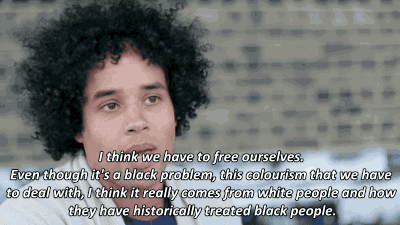
In attempting to make a case for this very worrying situation, someone once responded to these observations saying something like, “perhaps, they’re only using the (o)broni term figuratively,” and i retorted, “that is exactly the problem.”
That whiteness has to be called upon to validate the beauty of a black woman. That whiteness has to be the standard, the default, the epitome when we’re talking about beauty and admiration. That a beautiful black woman can’t be just that -a beautiful black woman- without being referred to as a ’(black)-white’ person.
The fact of the matter is that this most unfortunate phenomenon is deeply rooted in colourism, and much deeper in the colonial experience. Simply, it is the reflection of a colonial mentality to have Africans feel the need to use phrases such as “mi broni” and “tuntum broni” to extol their love interests, who’re obviously African. After all, wasn’t it during the colonial experience that we were taught that everything 'white’ was aspirational, admirable, to be desired, and everything 'black’ on the other hand, disdainful, repulsive and to be abhorred?
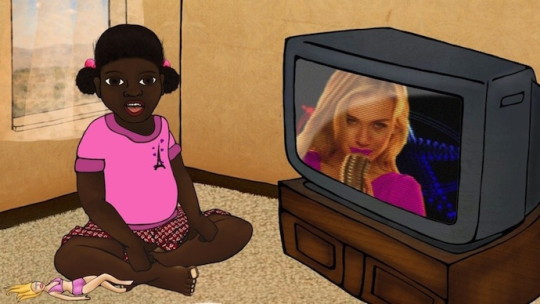
This colourist “broni” business is of course, not limited to rap-in fact, it is much more prevalent in highlife music. It is not even limited to the music scene, but actually spread across our whole society. (Isn’t our music generally reflective of our society?) But for the purposes of this blog, the focus will be on rap/hip hop music in Ghana.
In decrying this mentality that breeds acts such as skin bleaching, most of our rappers, in their token 'conscious’ songs, often miss the mark.
In an industry whose (biggest) voices still use such anti-black(skin) terms such as tuntum broni, in an industry where we’re most likely to have have light skinned women featuring in music videos, where musicians feel the need to brag about the fact that the woman they dating is biracial, in an industry that basically suggests that 'the lighter, the better’-and therefore reinforces colourist ideals, you do not go about barking at people who bleach their skins. However well-intentioned these efforts may be, there is nothing conscious about attacking people who in this case, bleach their skins. A deeper look at it though, would reveal something ahistorical and hypocritical, and everything unconscious, about it all.
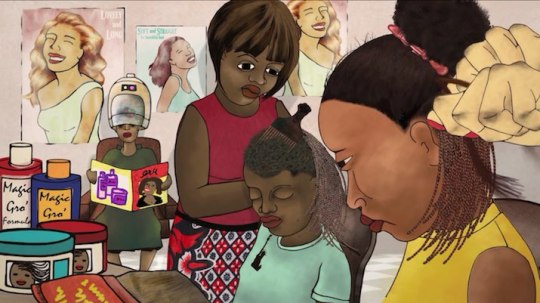
If artistes feel the need to make socially conscious and progressive songs (which is a very laudable thing), it is imperative that they educate themselves and also attack, instead of victims, the underlying ideas or structures that lead to whatever malaise within society they’re disgusted at. Unconsciously being part of a problem you cry against, is not cool. Neither is victim blaming.
In ‘Anthills of The Savannah,’ the late Chinua Achebe wrote a wonderful proverb. It says that “if you want to get to the root of murder, you have to look for the blacksmith who made the matchet.”
(Note: the last two photos are stills from this brilliant short film that explores colourism. Highly recommended.)
On This Day in History June 17, 1958: The novel “Things Fall Apart” by Nigerian writer Chinua Achebe is published by London-based publishing house William Heinemann. By the 60th anniversary of its first publication, the book has been translated into over 60 languages and has sold 20-million copies. It is one of the pillars of African literature.
#ThingsFallApart #ChinuaAchebe #BlackHistory #BlackStudies #BlackHistoryMatters #AfricanHistory #AfricanStudies #AfricanLiterature #LiteraryHistory #WorldHistory #History #Historia #Histoire #Geschichte #HistorySisco
https://www.instagram.com/p/Ce6dAzkus5N/?igshid=NGJjMDIxMWI=
Post link


